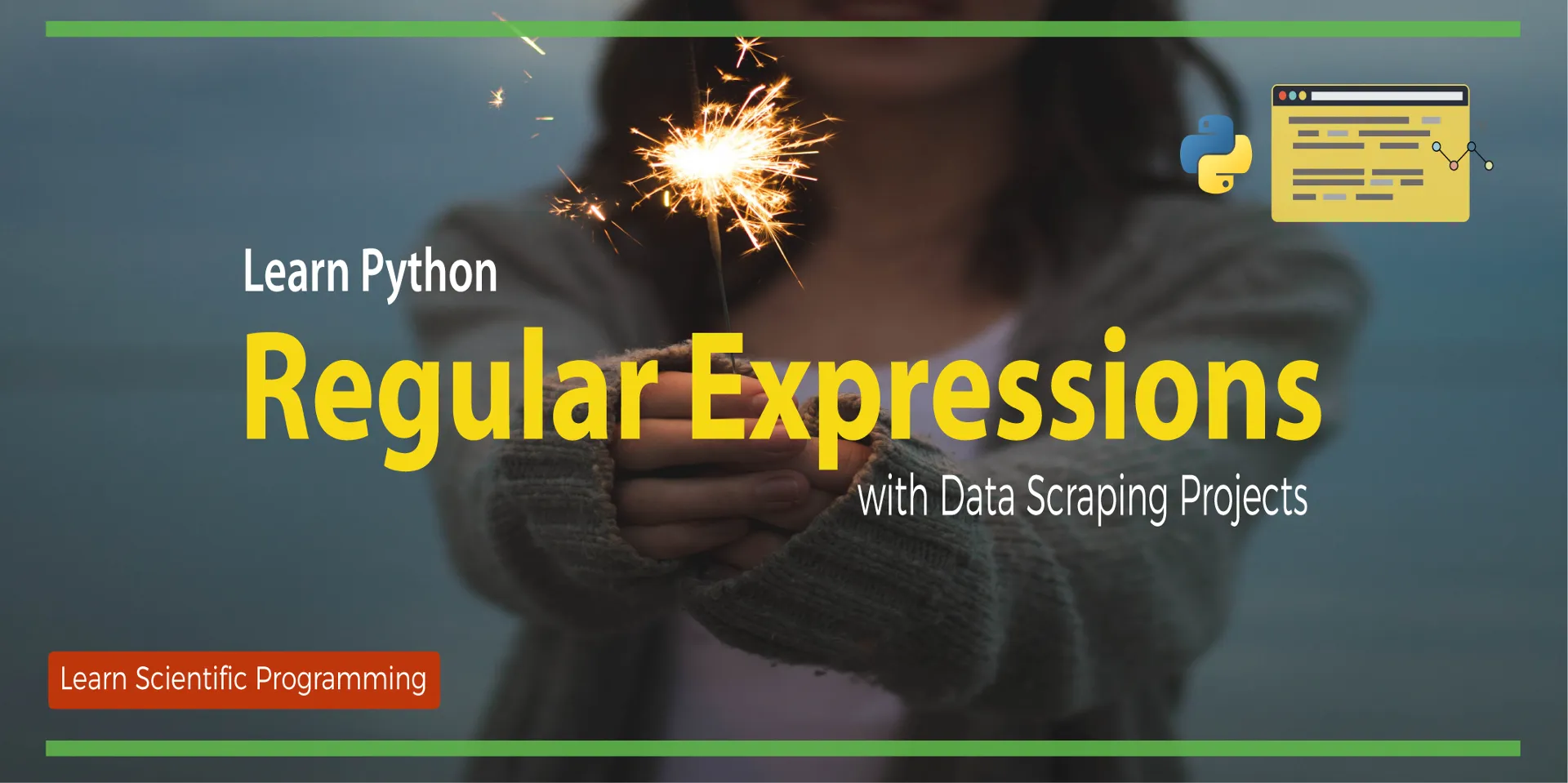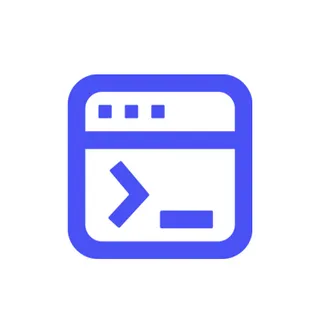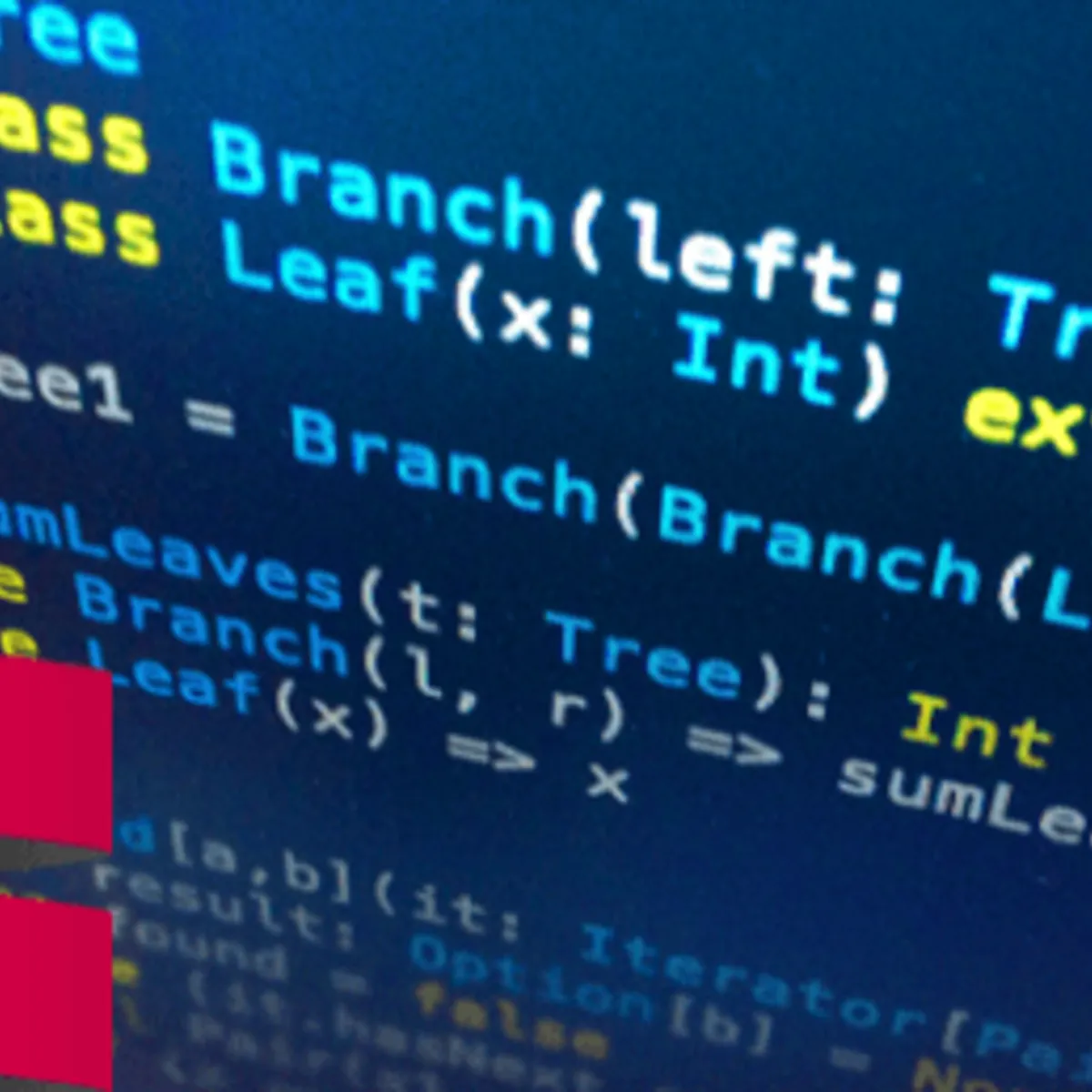
Python Regular Expressions with Data Scraping Projects 
This course provides an introduction to Python Regular Expressions and Data Scraping Projects. In less than 30 minutes, learners will gain the skills necessary to begin using Python Regex in their own projects. This course is a key part of the Learn Scientific Programming project. ▼
ADVERTISEMENT
Course Feature
![]() Cost:
Cost:
Free Trial
![]() Provider:
Provider:
Educative
![]() Certificate:
Certificate:
No Information
![]() Language:
Language:
English
![]() Start Date:
Start Date:
Self Paced
Course Overview
❗The content presented here is sourced directly from Educative platform. For comprehensive course details, including enrollment information, simply click on the 'Go to class' link on our website.
Updated in [March 06th, 2023]
This course, Python Regular Expressions with Data Scraping Projects, is designed to teach learners how to use the Python regular expressions (re) module and relevant functions. Through interactive lectures, coding exercises, and quizzes, learners will gain a comprehensive understanding of the fundamentals of regular expressions and how to apply them to real-world data examples such as pdf and web scraping. The course is beginner friendly and provides video lectures to explain the basic REGEX concepts. Learners will also gain the skills to automate tasks, analyze text, and scrape data from websites. By the end of the course, learners will have the knowledge and confidence to use regular expressions to solve complex problems.
[Applications]
This course provides students with the knowledge and skills to apply Python regular expressions and data scraping projects. Students can use the re module and relevant functions to interactively learn how to deal with real world data examples. Additionally, coding exercises and quizzes are provided to challenge students and beginner friendly video lectures are available to explain the basic REGEX concepts. With this course, students will be able to confidently apply Python regular expressions and data scraping projects.
[Career Paths]
1. Data Scientist: Data Scientists use Python regular expressions to extract data from various sources, such as web scraping, PDFs, and other sources. They then use this data to create predictive models and insights. This is a rapidly growing field, as businesses are increasingly relying on data-driven decisions.
2. Web Developer: Web Developers use Python regular expressions to create web applications and websites. They use the re module to parse HTML and XML documents, as well as to validate user input. This is a highly sought-after skill, as businesses are increasingly relying on web-based applications.
3. Software Engineer: Software Engineers use Python regular expressions to create software applications. They use the re module to parse data from various sources, such as databases, text files, and web services. This is a rapidly growing field, as businesses are increasingly relying on software applications to automate processes.
4. Data Analyst: Data Analysts use Python regular expressions to analyze data from various sources. They use the re module to extract data from web scraping, PDFs, and other sources. This is a rapidly growing field, as businesses are increasingly relying on data-driven decisions.
[Education Paths]
1. Bachelor of Science in Computer Science: This degree program provides students with a comprehensive understanding of computer science fundamentals, including programming, software engineering, and data structures. It also covers topics such as artificial intelligence, computer graphics, and computer networks. This degree is ideal for those who want to pursue a career in software development, data science, or computer engineering. Developing trends in this field include the use of machine learning, natural language processing, and blockchain technology.
2. Bachelor of Science in Data Science: This degree program focuses on the application of data science principles to solve real-world problems. It covers topics such as data mining, machine learning, and data visualization. Students learn to use Python, R, and other programming languages to analyze data and develop predictive models. Developing trends in this field include the use of artificial intelligence, deep learning, and big data analytics.
3. Master of Science in Artificial Intelligence: This degree program provides students with an in-depth understanding of artificial intelligence principles and techniques. It covers topics such as machine learning, natural language processing, and computer vision. Students learn to use Python, R, and other programming languages to develop AI-based applications. Developing trends in this field include the use of deep learning, reinforcement learning, and robotics.
4. Master of Science in Data Science: This degree program focuses on the application of data science principles to solve real-world problems. It covers topics such as data mining, machine learning, and data visualization. Students learn to use Python, R, and other programming languages to analyze data and develop predictive models. Developing trends in this field include the use of artificial intelligence, deep learning, and big data analytics.
Course Provider

Provider Educative's Stats at AZClass
Discussion and Reviews
0.0 (Based on 0 reviews)
Explore Similar Online Courses

How to Plan Your 12-Month Grants Calendar in Under an Hour
![Wedding Dance Choreography - Despacito - Luis Fonsi [Salsa]](/ccsimg/dcs/img_tools/dcs_img_1691886001_c2febda8e2523e7a73751ad417605209.webp)
Wedding Dance Choreography - Despacito - Luis Fonsi [Salsa]

RDBMS PostgreSQL

Intro To PostgreSQL Databases With PgAdmin For Beginners

PostgreSQL: Client Applications

Mastering SQL using Postgresql

Database Design and Basic SQL in PostgreSQL

PostgreSQL: Advanced Queries

Spatial SQL with Postgres : A language for geographers

Learn SQL Using PostgreSQL: From Zero to Hero

PostgreSQL Essential Training

Big Data Analysis with Scala and Spark
 Related Categories
Related Categories
 Popular Providers
Popular Providers
Quiz
 Submitted Sucessfully
Submitted Sucessfully
1. What is the main purpose of this course?
2. What kind of data examples are used in this course?
3. What kind of challenges are included in this course?
4. The course is _________ friendly.
Correct Answer: beginner


Start your review of Python Regular Expressions with Data Scraping Projects